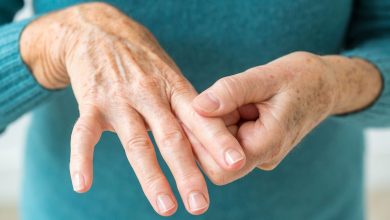Health
What You Should Know About Type 2 Diabetes
What is Type 2 Diabetes and could you be suffering from it? Find out by reading below

Type 2 Diabetes is disease that affects more than 3 million Americans every year. It can happen at any age; however, it most often occurs after the age of 40. This is why it is referred to as adult onset diabetes. Type 2 diabetes occurs when the body becomes resistant to insulin or when the pancreas cannot produce enough insulin
Some people are more at risk for developing type 2 diabetes. These risk factors include:
- Family history
- Stoutness
- Hypertension
- Elevated cholesterol
- For ladies, history of gestational diabetes
- Smoking
- Inactive lifestyle
If left untreated, diabetes can prompt genuine complications, for example,
- Kidney disease
- Nerve damage
- Stroke
- Glaucoma and other eye issues
A type 2 diabetes diagnosis might be scary to hear, but there are different ways to help handle the diagnosis. With the help of a good eating routine, exercise and medication type 2 diabetes can be kept under control.
Eating Routine
It’s important to have good eating routines and exercise; however for people with type 2 diabetes this is extremely important. Some lifestyle changes will be needed. The main question people have when they are diagnosed with type 2 diabetes is “What am I permitted to eat?” fortunately those with type 2 diabetes don’t have to deny themselves of their most loved foods.
The best approach for a good eating plan is to fill 1/4 of your plate of high protein. Examples of protein include meat, soy or dairy items are basic to any sound eating regimen. Half of your plate should be vegetables like greens, onions, or mushrooms. The rest of the 1/4 of your plate should be starches.
A confusing part of maintaining a good eating plan is if sugar is allowed. With all of the types of sugar, its hard to determine if sugar is allowed. If so which sugars are good and which are bad. The four types of sugar are:
- Glucose is the sugar in blood, and dextrose is the name given to glucose produced from corn
- Fructose is the principal sugar in fruit.
- Sucrose is table sugar.
- HFCS is made from corn starch.
Diabetics have been advised in the past to stay away from sugar all together. Currently, it’s believed that you can have little amounts of sugars and be ok. That doesn’t mean go over board. The best thing to do is to limit sweets for special events. This way you can treat yourself to your favorite sweet without reservation.
There’s no magical list of what you can and can’t eat. Everybody has distinctive circumstances and individual tastes. The primary things to concentrate on in your eating regimen are starches, fiber, fat, and salt. You should remember that balance is important. Embracing a solid eating regimen will enable you to lose additional weight, which will help you better deal with your diabetes.
Exercise
Try not to begin any activity program without talking to your doctor. If you are not used to working out, it can be risky to start a workout that is too strenuous. It is best to start slow and work up to harder exercises. Your exercise doesn’t need to be high energy for it to count. Your exercises could be as light as a thirty-minute stroll during your lunch break each day. It’s that simple.
Drugs
There are times that eating routines and exercise are insufficient to control type 2 diabetes. If you do require medicine, you will have to strictly follow your doctors instructions. You may need to take pills as well as insulin to control your glucose levels.
Specialists may utilize a medication like metformin to help the liver keep the glucose it produces. Different medicines help the pancreas to create more insulin. DPP-4 Inhibitors get the body from separating hormones that make the pancreas create insulin. This enables your blood sugar to come down after eating.
Prescriptions like thiazolidinediones or TZDs help the insulin your body work better. Alpha-glucosidase inhibitors moderate the processing of complex sugars like bland vegetables and bread. You may take drugs for your cholesterol.
Sometimes medicines for type 2 diabetes quit working after some time. No one knows why this happens. If this happens, your specialist may recommend more than one solution, otherwise referred to as an oral mix treatment.
At Last…
Conditions, like being over weight and elevated cholesterol can raise your risk for type 2 diabetes; however, being diagnosed with type 2 diabetes does not reflect on your lifestyle. Things out of your control, for example, family history can add to your diagnosis.
There are a few ways you can control your condition. You should work with your specialist to ensure you are doing all that you can to remain healthy.




